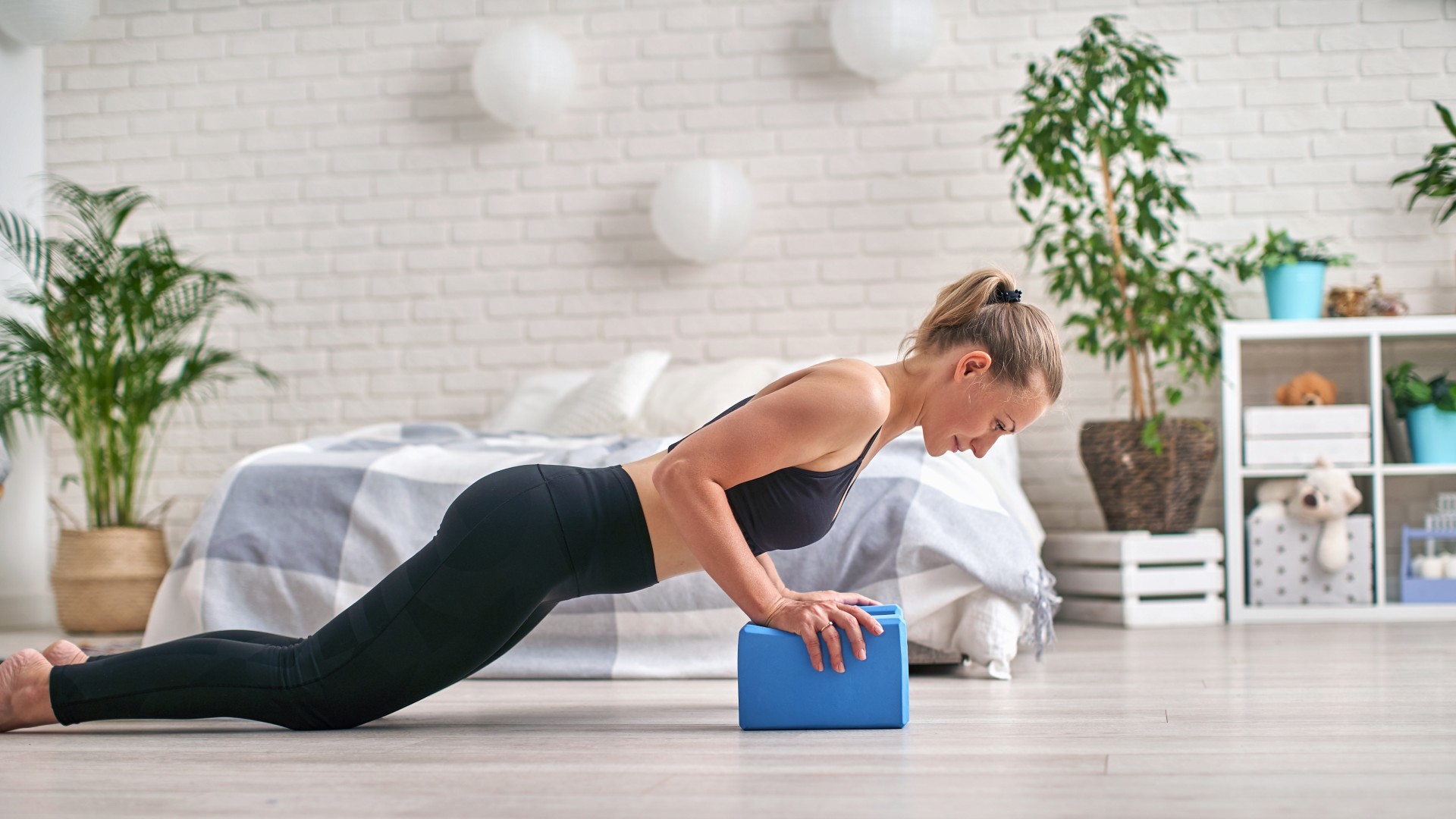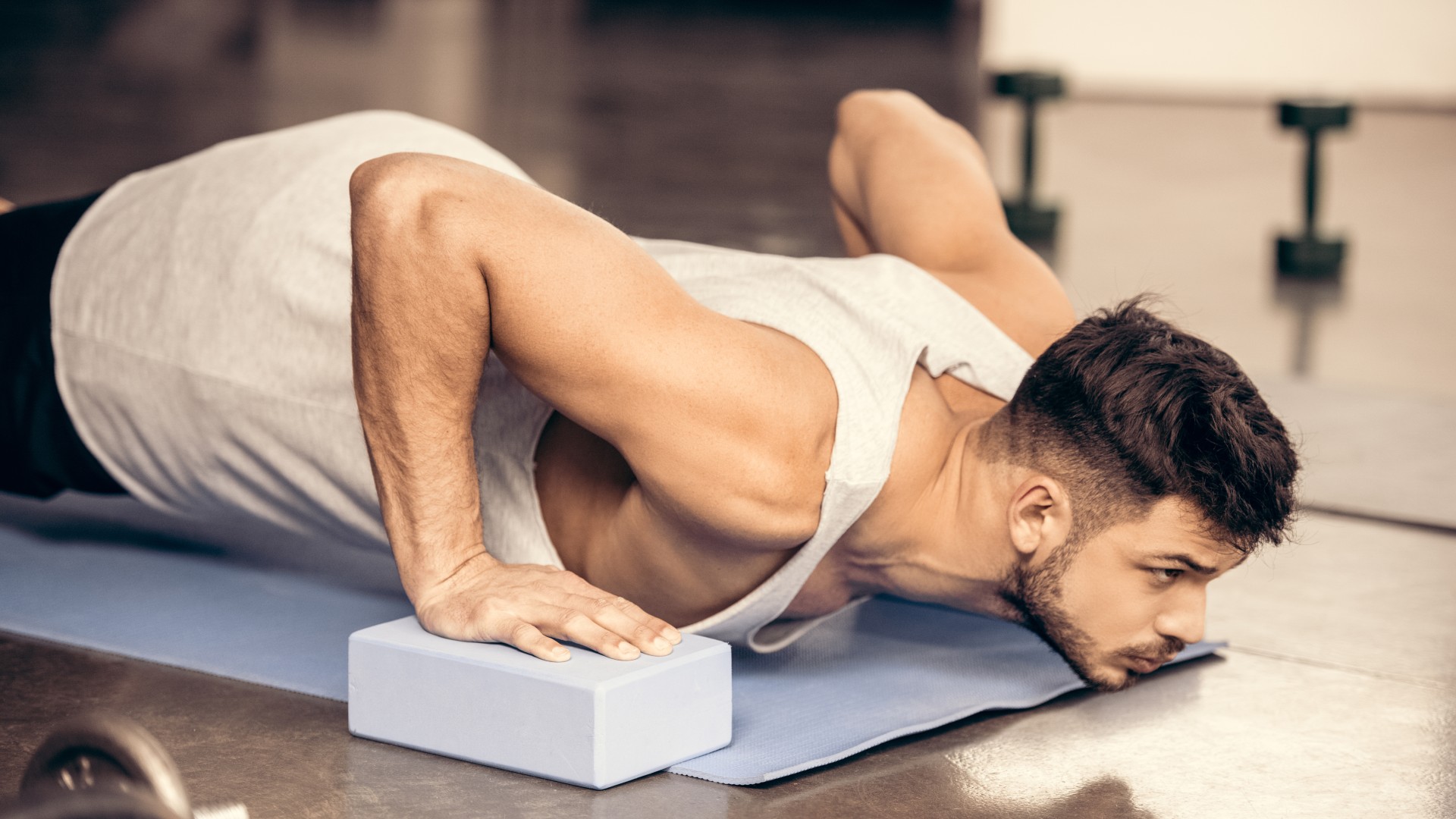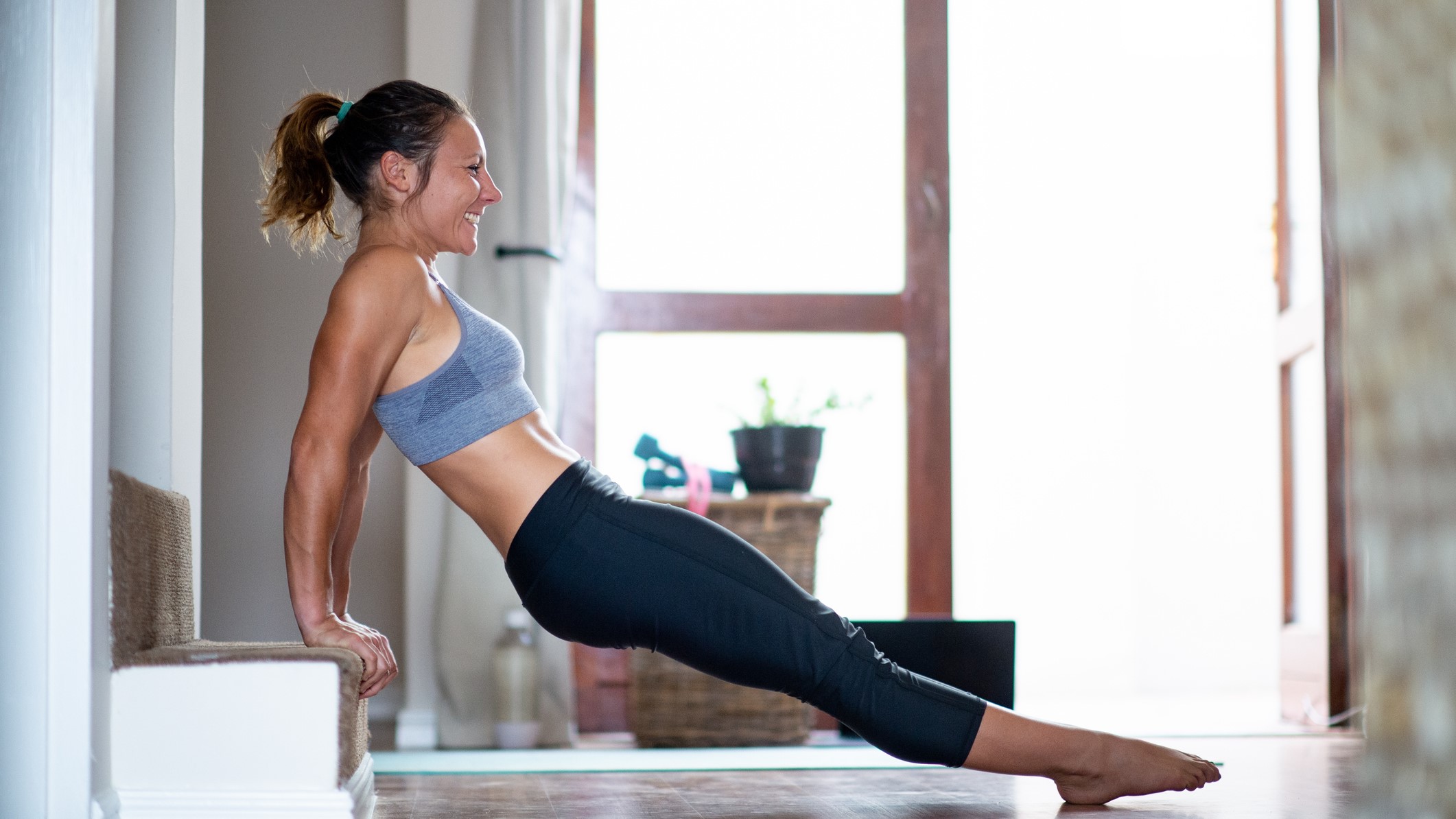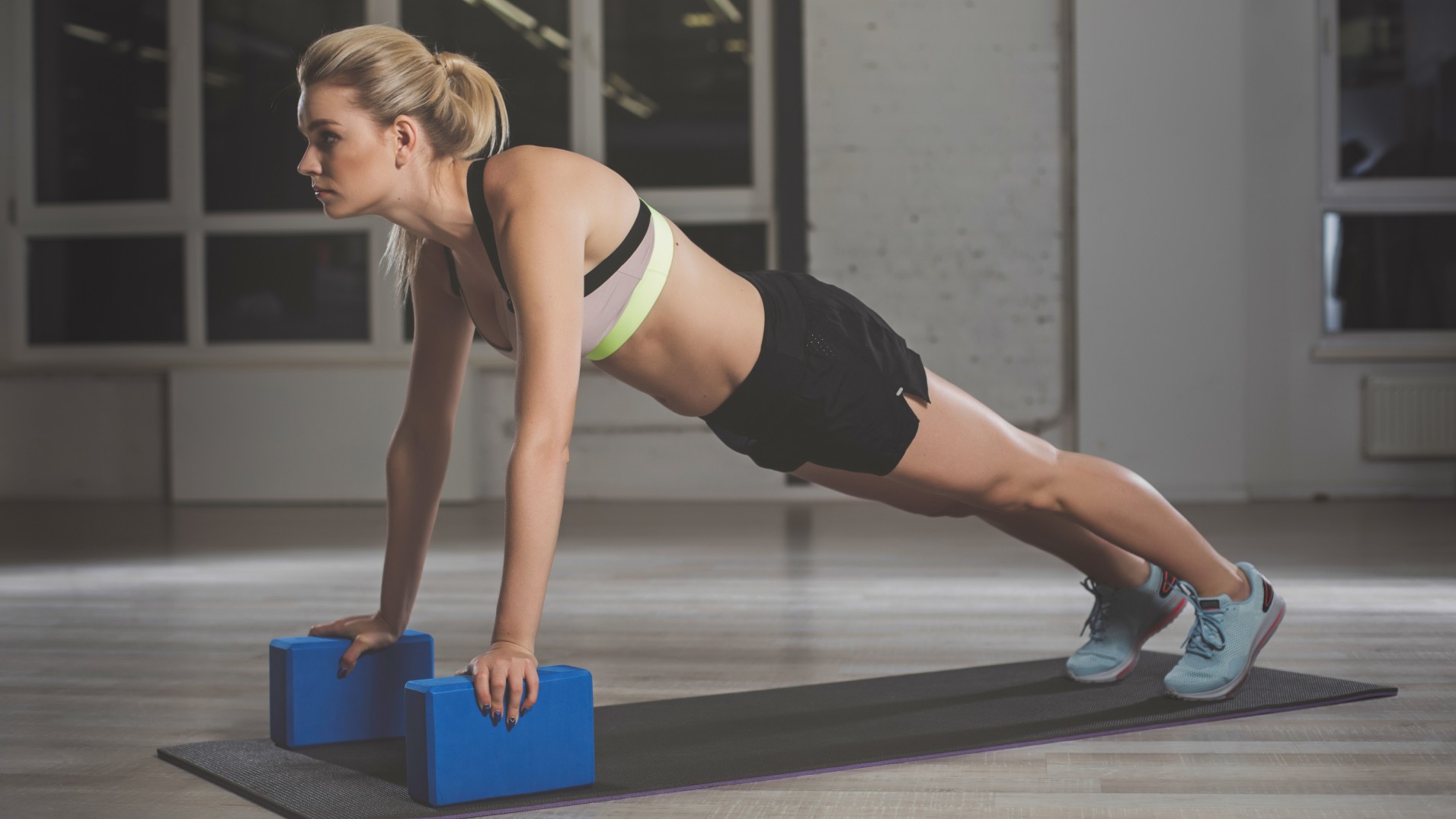
Yoga blocks aren’t the first piece of gym equipment I think of when I want to train my core, build upper body strength, or grow lean muscle mass. Nevertheless, this $10 accessory doesn’t just level up your yoga routine but also increases intensity during bodyweight exercises.
Yoga block strength exercises are the perfect way to intensify bodyweight or resistance band workouts without much equipment at your disposal, which means that you can do this anywhere if you have a yoga block or two to hand. So don’t worry about dumbbells, kettlebells, or gym machines to try them.
If you’re not convinced, read on to find out how to do the three bodyweight exercises with perfect form and why you should choose a yoga block next time you need some workout inspiration.
These aren’t ab exercises, but they'll still work your core and upper body. If you don't have a yoga block, why not use a book or pillow instead? Better yet, have two on hand. Here are the exercises and a workout to try.
What are the 3 yoga block strength exercises?
1. Hand-release push-ups

During hand-release push-ups, you’ll lift your hands away from the floor, then place them down again and push up to the starting position. Your upper body will learn to produce power from dead weight and exert greater force to press the body away from the floor without momentum or partial range of motion.
Your hips and thighs shouldn’t touch the floor, so a yoga block helps elevate the body and bridge the gap between your chest and the floor if you’re new to the exercise.
How:
Get instant access to breaking news, the hottest reviews, great deals and helpful tips.
- Place one yoga block laid horizontally or vertically between your shoulders and start in the push-up position.
- Engage your core and check alignment — hips aligned with the shoulders and shoulders directly over the wrists.
- Lower toward the floor by bending your elbows.
- Rest your chest on the block, then release both hands from the floor.
- Look to the top of your mat. Squeeze your glutes, core and quads to prevent your lower body from dropping and maintain a straight line from head to toe.
- Place both hands down again and push away from the block to the starting position.
To advance the exercise, position two blocks on the lowest setting beneath your hands, shoulder-width apart. Lower your chest to the floor, release your hands from the blocks, then place them back on and push up to the starting position. The deficit created by the blocks will make the exercise harder to perform.
2. Triceps dips

Place a large block lengthways behind you, or use two blocks positioned shoulder-width apart. The triceps burner also activates your pecs and shoulder muscles.
How:
- Start with your hands elevated on the block behind you or use a raised stable surface.
- Place your feet on the floor hip-width apart and straighten both legs.
- Engage your core and lift your hips into a reverse plank position.
- Your fingers should point toward your heels, or you can turn them slightly outward.
- Bend your elbows so that they point behind you, and lower your bum toward the floor.
- Pause, then drive up and extend both arms. Keep your hips still so that your triceps do the work.
Here’s how to do triceps dips in more detail. The yoga blocks increase the range of motion as your bum travels further to lower, helping muscles to hold tension for longer.
3. Triceps push-ups

Ideally, use two yoga blocks for this exercise, but you could practice with one. The narrow arm position emphasizes the triceps, helping to strengthen your arms while targeting your pecs and anterior deltoids (frontal heads of the shoulders).
How:
- Position a yoga block beneath each shoulder (you can use one if you don’t have two). If you can manage chest-to-floor push-ups, choose the lowest block setting or start on the tallest setting if you’re learning.
- Start in a push-up position with both hands set just behind the blocks and slightly narrower than shoulder-width.
- Lower toward the blocks by bending your elbows. Keep your stomach braced and avoid dropping your hips.
- Touch the blocks with your shoulders, then push away to the starting position.
If you prefer, position a yoga block beneath each hand, narrower than shoulder-width apart, and perform a triceps push-up by lowering your chest to the floor from the elevated position. I find the first variation burns out my triceps more and helps me track my shoulders properly, keeping my elbows aligned.
Why can’t I get muscle definition?
Firstly, having muscle definition doesn’t signal strength. People with higher body fat percentages can be extremely strong despite not appearing lean, and someone with a low body fat percentage might look sculpted yet may have barely any training experience.
Building strength and muscle mass are two different processes and not mutually exclusive (we explain hypertrophy vs strength training here). How defined you look relies on training the muscles to grow and having a lower body fat percentage overall.
After all, the less body fat you have, the more muscle you can see. It’s also worth noting factors like lifestyle and genetics will play a role in your body composition, so we recommend swatting up on body fat percentage and why it matters.
Benefits of bodyweight workouts
Working with your body weight improves functional fitness by strengthening the muscles, joints, ligaments and bones that support healthy movement. Regular bodyweight training could also improve mobility and overall range of motion while working on your relative strength (the ability to produce force relative to your body weight), which is desirable for sportspeople and athletes.
Consider your strength compared to your body size — the better your relative strength, the better you can control and move your body in space while running, during gymnastics, or jumping, for example. You could add yoga blocks to any of these calisthenics regimes to help supercharge your bodyweight workouts.
Yoga blocks: Benefits
Although yoga blocks help to improve posture and alignment during yoga classes, they can also make bodyweight strength exercises harder. As if there aren’t enough tortuous pieces of gym equipment in the world, now the humble yoga block has been weaponized to increase muscle activation and build intensity.
Although you can master the exercises above using one block, we recommend buying a set of two if possible. Even if you don’t have a regular practice, they come in handy. That said, books and cushions do the job if you have them.
3-move yoga block upper body workout:
20-15-10-5-3
10-minute time cap
Nice and simple — set a timer for 10 minutes and start with 20 reps of the three exercises. Take a brief rest if you need one, then complete 15 reps per exercise. Continue through the reps above until you finish 3 reps per exercise. Try to keep the timer the same if you repeat the workout and keep a tally of your finishing time.
More from Tom's Guide
- Forget planks, I did 100 walking push-ups every day for one week, and here are my results
- Forget crunches, you only need a kettlebell and 4 exercises to strengthen your core
- 5 ab exercises you can do with a yoga block

Sam Hopes is a level 3 qualified trainer, a level 2 Reiki practitioner and fitness editor at Tom's Guide. She is also currently undertaking her Yoga For Athletes training course.
Sam has written for various fitness brands and websites over the years and has experience across brands at Future, such as Live Science, Fit&Well, Coach, and T3.
Having coached at fitness studios like F45 and Virgin Active and personal trained, Sam now primarily teaches outdoor bootcamps, bodyweight, calisthenics and kettlebells.
She also coaches mobility and flexibility classes several times a week and believes that true strength comes from a holistic approach to training your body.
Sam has completed two mixed doubles Hyrox competitions in London and the Netherlands and finished her first doubles attempt in 1:11.
 Club Benefits
Club Benefits





